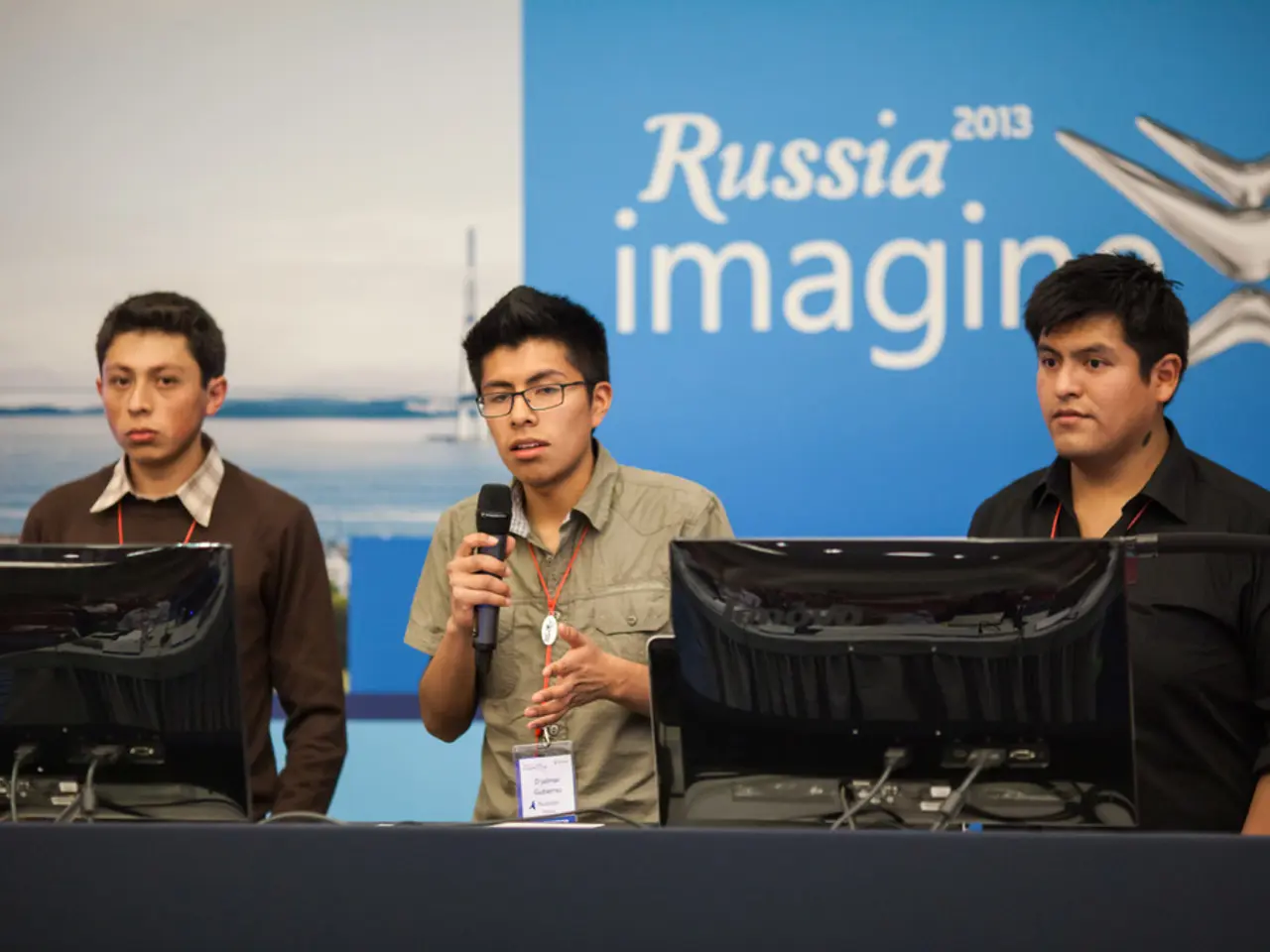In response to an emergency virtual meeting, EU diplomatic leader Kaya Kallas (ex-Prime Minister of Estonia) declared that the European Union lacks faith in accords with Russia and intends to prepare the Armed Forces of...
In a significant move, the European Union (EU) has announced that it will provide military training to the Armed Forces of Ukraine. This decision was made following an emergency online community summit attended by the EU, during which Ukraine was the primary topic of discussion.
Kaya Kallas, the former Prime Minister of Estonia and current head of the EU, spoke on behalf of the union, emphasising the EU's lack of trust in agreements with Russia. She stated, "The EU does not trust agreements with Russia."
The EU's military training will be delivered through individual member states, with Germany taking a direct role. The German Bundeswehr is already involved in training Ukrainian soldiers at the Technical School of the Army (TSH), adapting lessons learned from the Ukraine war into their training.
In addition to military training, the EU has also confirmed that it will continue to impose sanctions against Moscow. This decision underscores the EU's ongoing commitment to supporting Ukraine in its efforts to maintain its sovereignty and security.
This news comes as the EU continues to navigate the complex geopolitical landscape of Eastern Europe, seeking to support Ukraine while maintaining a cautious stance towards Russia. The EU's actions demonstrate a strong commitment to upholding international law and promoting peace and stability in the region.
As the situation in Ukraine continues to evolve, it is likely that the EU will remain actively engaged, providing support and assistance where it is needed most. The EU's decision to train the Ukrainian Armed Forces and continue sanctions against Russia is a clear signal of its commitment to Ukraine's sovereignty and security.
Read also:
- ICE directed to enhance detention conditions following NYC immigrants' allegations of maltreatment
- Israeli finance minister issues warnings about potential annexation of West Bank territories
- United States faces rebuttal from South Africa over allegedly deceitful human rights report and assertions of land expropriation
- Accident at Rodalben Results in Injuries; Geoskop Area near Kusel Affected After Stormy Weather








